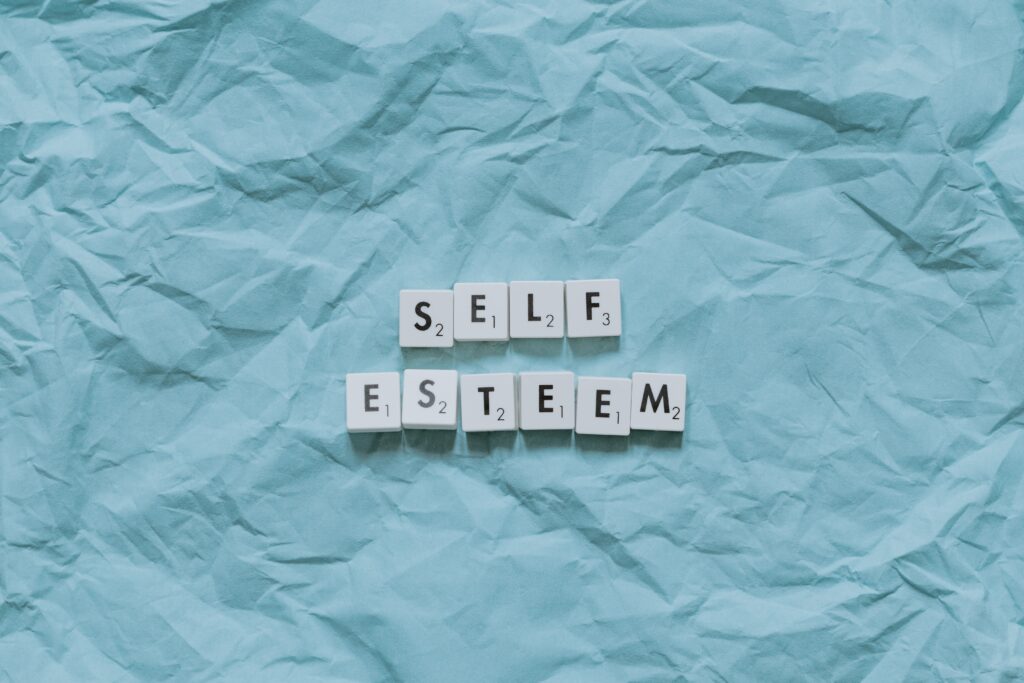
In this article, we will explore effective strategies to help you overcome your insecurities and enhance your relationships. Whether it’s a romantic partnership, friendship, or even family connections, our insecurities have the potential to hinder our ability to connect deeply with others. By identifying and addressing these insecurities, you can pave the way for healthier, more fulfilling relationships that are built on trust, authenticity, and self-love. Let’s dive in and discover how you can overcome your insecurities and thrive in your relationships.

Get Your Romance Back On Check Click Here To Learn More!
Understanding Insecurities
Defining insecurities
Insecurities are feelings of doubt, anxiety, or low self-esteem that may arise from various sources, such as past experiences, societal pressures, or negative self-perception. These insecurities can impact how you perceive yourself and interact with others, often leading to difficulties in relationships.
Common causes of insecurities
Insecurities can stem from a variety of factors including childhood experiences, societal standards, comparison to others, and past failures or rejections. They can also be triggered by trauma, abuse, or criticism from others. Understanding the root causes of your insecurities is crucial for addressing and overcoming them.
Recognizing the impact of insecurities on relationships
Insecurities can significantly impact relationships by creating a sense of self-doubt, fear of rejection, and difficulty in expressing emotions. They may lead to excessive jealousy, possessiveness, or a constant need for reassurance. Recognizing how insecurities manifest in your relationships is essential for identifying areas that need improvement.
Self-Awareness and Acceptance
Identifying and acknowledging insecurities
The first step in overcoming insecurities is to identify and acknowledge their presence in your life. Take time to reflect on your thoughts and emotions, and pay attention to recurring patterns of self-doubt or negative self-talk. By becoming aware of your insecurities, you can begin the journey towards addressing and resolving them.
Understanding the root causes
Once you have identified your insecurities, it is important to understand their root causes. Explore your past experiences, upbringing, and societal influences that may have contributed to the development of these insecurities. This self-reflection will not only provide insight into their origins but also help you develop empathy and understanding for yourself.
Developing self-compassion
Self-compassion is a vital aspect of overcoming insecurities. Treat yourself with the same kindness, understanding, and support that you would offer a close friend. Acknowledge that everyone has insecurities and that it is a normal part of being human. Embracing self-compassion will help you challenge negative self-perceptions and cultivate a healthier relationship with yourself.
Embracing self-acceptance
One of the most powerful tools in overcoming insecurities is self-acceptance. Accepting yourself, flaws and all, allows you to embrace your uniqueness and value as an individual. Practice self-love by focusing on your strengths, achievements, and growth. Remember that you are deserving of love, respect, and healthy relationships.
Get Your Romance Back On Check Click Here To Learn More!
Building Self-Esteem
Recognizing strengths and achievements
Developing self-esteem involves recognizing and celebrating your strengths and achievements. Take inventory of your skills, talents, and accomplishments, no matter how small they may seem. By shifting your focus towards your positive qualities, you can boost your self-confidence and reduce the impact of insecurities.
Setting realistic goals
Setting realistic and achievable goals is essential for building self-esteem. Break larger goals into smaller, manageable steps, and celebrate each milestone along the way. By accomplishing these goals, you will reinforce your belief in your abilities and create a sense of accomplishment that can counteract insecurities.
Engaging in self-care activities
Engaging in self-care activities is an effective way to boost self-esteem and combat insecurities. Prioritize activities that bring you joy, relaxation, and fulfillment. Whether it’s practicing hobbies, exercising, spending time in nature, or indulging in self-care rituals, invest time and energy into activities that nourish your mind, body, and soul.
Surrounding yourself with positive influences
Surrounding yourself with positive influences can greatly impact your self-esteem and help combat insecurities. Seek out supportive friends and family members who uplift and encourage you. Limit exposure to negative influences, such as toxic relationships or social media that fosters comparison. Surrounding yourself with positivity will reinforce feelings of self-worth and confidence.
Developing Effective Communication Skills
Active listening
Active listening is an essential communication skill that can foster understanding and empathy in relationships. Practice giving your full attention to others when they speak, being present in the conversation, and avoiding distractions. Show genuine interest by asking questions and reflecting back what you have heard. Active listening promotes effective communication and can help overcome insecurities by fostering connection and understanding.
Expressing emotions assertively
Expressing emotions assertively is crucial for healthy relationships and addressing insecurities. Clearly and respectfully communicate your feelings and needs, while avoiding aggressive or passive-aggressive behaviors. Being assertive allows you to express yourself authentically and assert your boundaries, ultimately strengthening relationships and reducing insecurities.
Avoiding assumptions
Assumptions can lead to misunderstandings and contribute to insecurities in relationships. Practice open-mindedness and avoid jumping to conclusions without clarifying information. Ask for clarification when in doubt and give others the benefit of the doubt. Effective communication relies on clear and accurate information, reducing insecurities and fostering trust.
Seeking clarification
When faced with uncertainty or confusion, it is important to seek clarification. Rather than letting insecurities consume your thoughts, ask for clarification from the other person involved. This proactive approach to communication can help dispel insecurities by providing accurate information and promoting open dialogue.
Validating and empathizing with others
Validating and empathizing with others is an important aspect of effective communication and relationship-building. Show empathy by understanding and acknowledging the emotions and perspectives of others. Offer support, reassurance, and validation when someone shares their insecurities with you. By fostering empathy and validation, you create a safe space for open communication and reduce insecurities in your relationships.

Challenging Negative Thought Patterns
Identifying negative self-talk
Negative self-talk is a common manifestation of insecurities. Pay attention to your inner dialogue and identify negative thoughts or beliefs about yourself. Challenge these negative thoughts by questioning their validity and replacing them with more positive and realistic affirmations.
Cultivating positive affirmations
Cultivating positive affirmations is a powerful tool for challenging insecurities. Develop a list of positive statements about yourself, focusing on your strengths and worthiness. Repeat these affirmations regularly, especially when negative thoughts arise. By practicing positive self-talk, you can rewire your brain to embrace self-confidence and diminish insecurities.
Practicing cognitive reframing
Cognitive reframing involves shifting your perspective and interpreting situations in a more positive and constructive light. When faced with insecurities, consciously challenge negative interpretations and reframe them in a more empowering way. Viewing challenges as opportunities for growth and learning can help overcome insecurities and foster resilience.
Seeking professional help if needed
If insecurities persist and significantly impact your well-being and relationships, seeking professional help is a valuable option. A therapist or counselor can provide guidance, support, and specialized techniques to address deep-rooted insecurities. Professional help offers a safe and non-judgmental space for exploration and healing.
Establishing Boundaries
Recognizing personal limits
Recognizing and respecting your personal limits is essential for establishing healthy boundaries. Understand your physical, emotional, and mental boundaries and communicate them assertively. By honoring your limitations, you protect yourself from situations that trigger insecurities and preserve your well-being.
Communicating boundaries assertively
Clearly communicate your boundaries to others assertively and respectfully. Explain your needs and expectations, and assertively express when your boundaries have been crossed. Effective communication of personal boundaries sets the foundation for healthy and secure relationships and reduces the likelihood of insecurities arising.
Saying ‘no’ when necessary
Learning to say ‘no’ is a vital skill in establishing and maintaining boundaries. Understand that it is okay to prioritize your own well-being and decline requests or demands that do not align with your boundaries or values. Saying ‘no’ when necessary builds self-confidence and empowers you to control your experiences, minimizing insecurities that may arise from compromising your boundaries.
Respecting others’ boundaries
Just as you expect others to respect your boundaries, it is important to reciprocate by respecting the boundaries of others. Be attentive to their needs, limitations, and comfort levels, and avoid pressuring or crossing their boundaries. By establishing a culture of mutual respect, you contribute to creating secure and fulfilling relationships devoid of unnecessary insecurities.

Cultivating Trust
Building trust within oneself
Building trust within yourself is an essential component of overcoming insecurities. Cultivate self-trust by honoring your commitments, listening to your intuition, and making choices aligned with your values. By consistently demonstrating reliability and trustworthiness to yourself, you develop a solid foundation of self-trust, reducing insecurities in relationships.
Being reliable and trustworthy
Trust is a fundamental pillar in any relationship. Building trust with others requires being reliable and trustworthy. Keep your promises, follow through on commitments, and communicate honestly and openly. By fostering trustworthiness, you create a sense of security and reduce insecurities within your relationships.
Open and honest communication
Open and honest communication is key to building trust and overcoming insecurities. Engage in transparent conversations, share your thoughts and feelings authentically, and be receptive to the honesty of others. Cultivating an environment of open communication fosters trust, reduces misunderstandings, and strengthens relationships.
Rebuilding trust in damaged relationships
In damaged relationships where trust has been broken, rebuilding trust is a process that requires patience, consistency, and genuine effort. Take responsibility for your actions, apologize sincerely, and demonstrate through your behavior that you are committed to change. Rebuilding trust takes time, but by consistently showing reliability and trustworthiness, you can gradually mend the relationship and minimize insecurities.
Developing Healthy Coping Mechanisms
Identifying triggers
Identifying triggers is crucial in managing insecurities effectively. Reflect on situations, people, or events that tend to evoke insecurity and self-doubt. Awareness of your triggers will help you anticipate and prepare for potential challenges, allowing you to implement healthy coping mechanisms proactively.
Engaging in stress-reducing activities
Engaging in stress-reducing activities is essential for managing insecurities. Explore activities that promote relaxation and reduce stress, such as exercise, meditation, deep breathing exercises, or engaging in hobbies. By incorporating these activities into your routine, you can reduce the impact of insecurities on your well-being.
Practicing mindfulness and meditation
Practicing mindfulness and meditation can help you cultivate self-awareness and strengthen your ability to manage insecurities. Set aside time each day for mindful practices, such as meditation, deep breathing, or grounding exercises. These techniques promote self-reflection, reduce rumination, and create a sense of calm that can counteract insecurities.
Seeking support from loved ones or professionals
When facing overwhelming insecurities, seeking support from loved ones or professionals can provide guidance, encouragement, and validation. Lean on trusted friends or family members who can offer a listening ear and understanding. Additionally, consider reaching out to therapists or counselors who specialize in managing insecurities and relationship issues. Seeking professional support demonstrates strength and a commitment to personal growth.

Fostering Positive Relationships
Choosing supportive and understanding partners
Choosing supportive and understanding partners is crucial for nurturing positive relationships. Opt for individuals who respect your boundaries, validate your emotions, and encourage your personal growth. Surrounding yourself with supportive partners reduces the likelihood of insecurities arising and fosters a sense of security within the relationship.
Surrounding yourself with positive influences
In addition to choosing supportive partners, surround yourself with positive influences in all areas of your life. Seek out friends, mentors, and role models who inspire and uplift you. Engage in communities or groups that align with your interests and values. By surrounding yourself with positive influences, you create an environment that nourishes self-esteem and minimizes insecurities.
Establishing healthy relationship dynamics
Establishing healthy relationship dynamics is crucial for overcoming insecurities. Foster open communication, mutual respect, and shared responsibilities within your relationships. Encourage growth and celebrate each other’s successes, fostering an environment that cultivates security, trust, and fulfillment.
Celebrating successes and growth together
Celebrating successes and growth together is an important aspect of fostering positive relationships. Acknowledge and appreciate each other’s achievements, both big and small. By supporting and celebrating each other’s growth, you create a partnership rooted in positivity and security, which actively combats insecurities.
Continuous Personal Growth
Embracing self-improvement
Embracing self-improvement is an ongoing process that allows you to continuously develop and overcome insecurities. Set goals for personal growth, whether it be learning new skills, pursuing hobbies, or expanding your knowledge. Embracing self-improvement demonstrates a commitment to personal fulfillment and empowers you to overcome insecurities effectively.
Seeking ongoing personal development
Seeking ongoing personal development is a proactive approach to overcoming insecurities. Attend workshops, seminars, or classes that focus on self-growth and personal development. Engage in therapy or coaching to further explore and address insecurities. By investing in continuous personal development, you foster resilience, self-awareness, and the tools necessary for overcoming insecurities.
Committing to self-reflection
Committing to self-reflection is vital for continuous personal growth and overcoming insecurities. Set aside regular time for introspection and evaluation. Identify areas for improvement, celebrate progress, and adjust goals as needed. Regular self-reflection fosters self-awareness, accelerates personal growth, and helps combat insecurities effectively.
In conclusion, overcoming insecurities is a journey that requires self-awareness, self-acceptance, and continuous personal growth. By understanding the root causes of insecurities, cultivating self-compassion, and building self-esteem, you can combat insecurities and enhance your relationships. Implementing effective communication skills, challenging negative thought patterns, and establishing boundaries will further empower you to overcome insecurities. Cultivating trust, developing healthy coping mechanisms, and fostering positive relationships are essential components of this process. Embracing ongoing personal growth and practicing self-reflection ensure that you continue to overcome insecurities and cultivate fulfilling relationships. Remember, you are capable of growing, learning, and embracing a life free from the limitations of insecurities.




